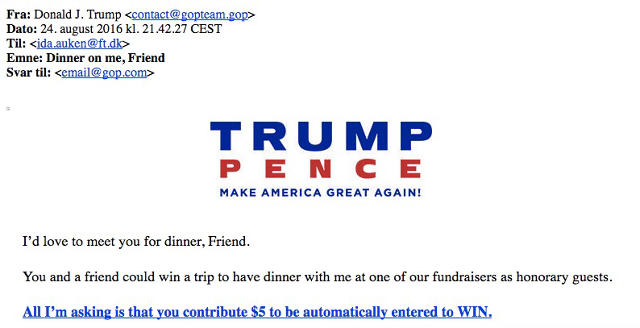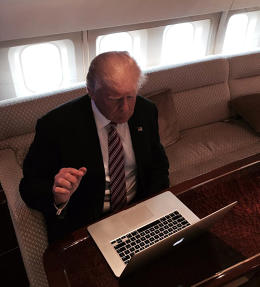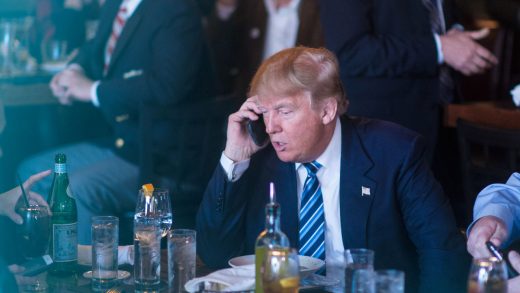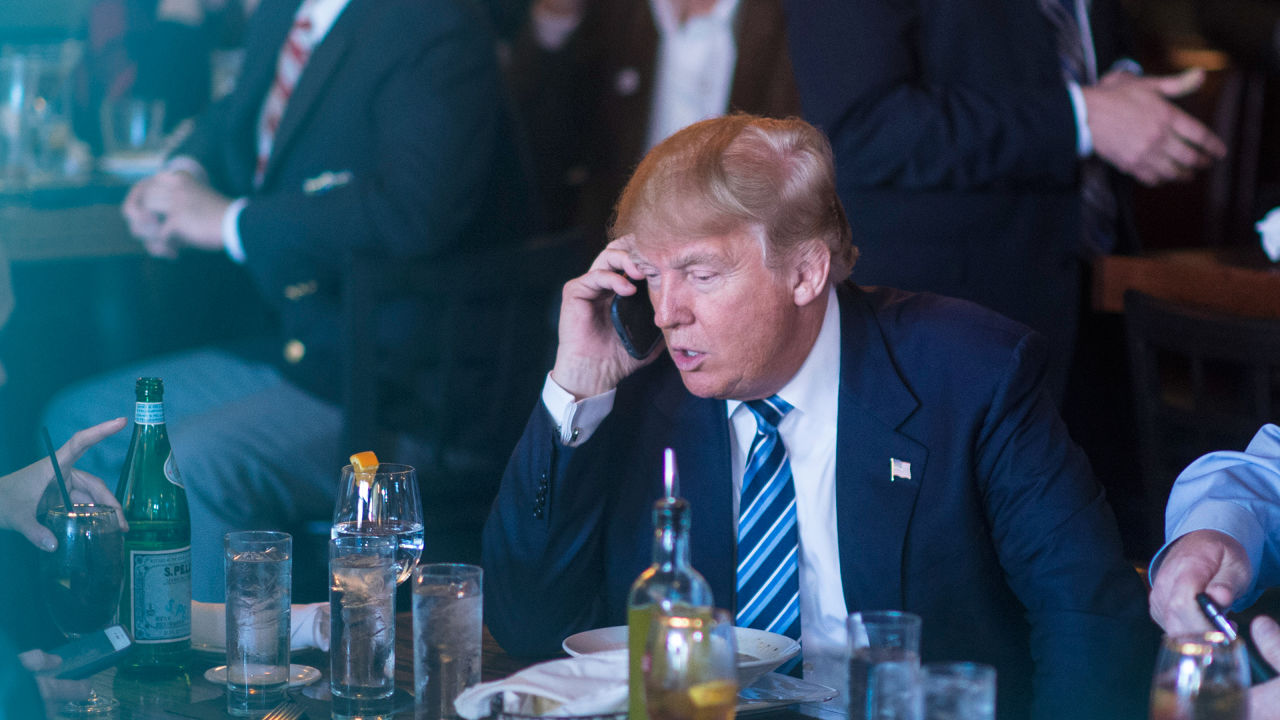Trump Campaign Continues To Send Illegal Solicitations To Foreigners Despite Warnings
The emails signed by Donald J. Trump or his children come at all hours. Sometimes in the middle of the afternoon, Sir Roger Gale looks down at his iPhone and sees that he’s been invited to dinner as an “honorary guest” if he makes a contribution. Other times, he’s just asked to give money to “make America great again.” And some mornings Gale is asked to sign a petition to “send Hillary and her corrupt Clinton Foundation packing for good!”
Sounds like the typically overheated requests for money flooding the inboxes of many Americans during this tense presidential race. Except that Gale is a member of the British Parliament who can’t vote in an American election or contribute money to a U.S. candidate. In fact, it’s strictly illegal for American politicians to solicit or accept donations from foreigners.
And the Trump campaign was warned by the Federal Election Commission back in June, when reports first surfaced that lawmakers in the U.K. and Australia were receiving solicitations from the Republican candidate, that such emails are illegal. And several good government groups, including Democracy 21 and the Campaign Legal Center, filed a criminal complaint with the FEC at the end of June, citing the emails to Gale and other non-U.S. politicians. Gale even talked about the emails on the floor of Parliament, asking the body’s digital service to take action to prevent them from clogging the inboxes of his fellow lawmakers.

Yet the emails continue. As recently as Wednesday, August 24, Gale was getting an email from Trump with the subject line, “Dinner on Me, Friend,” and asking him to give $5 so that “you and a friend could win a trip to have dinner with me at one of our fundraisers as honorary guests.” Gale is a conservative member of the House of Commons, but the emails are driving him crazy with outrage. He calls them “drivel” and “rubbish,” telling Fast Company that “I can only say personally that a Campaign Organisation that is so inept as to be unable to delete an email address following a question on the floor of the House of Commons speaks volumes about their candidate. People, however, tend to get the politicians that they deserve!”

Others politicians, including Australian MPs Tim Watts and Gai Brodtmann, also say they’ve continued to receive solicitations from the Trump campaign. “Since requesting her address be removed from the campaign’s mailing list on July 12, 2016, I can confirm she has nonetheless received further correspondence,” an advisor to Brodtmann told Fast Company. “They have been deleted on receipt.”
The illegal outreach also extends to lawmakers in Denmark and Finland who told Fast Company that they continue to receive such solicitations.
“I find it odd and a little bit desperate,” says Danish member of parliament Ida Auken. “Especially since I know it is not legal for them to receive money from abroad.”
It’s more than odd—it’s almost unprecedented in recent political history, say campaign observers. Brendan Fischer, associate counsel at the Campaign Legal Center, said he is not aware of the Clinton campaign or other presidential campaigns engaging in such activity. “Not only were these foreign politicians receiving these fundraising solicitations from the Trump campaign, but receiving them on their official government email addresses, clearly indicating that these recipients are overseas.”
But don’t hold your breath waiting for the FEC to respond. Within 5 days of the original June 29 complaint, the agency forwarded the complaint to the Trump campaign, which then had 15 days to reply. And then lawyers at the FEC consider the case and make a recommendation to the six commissioners, who are split evenly between Democrats and Republicans. “It could take years,” says Fischer, with a sigh in his voice.
The Trump campaign did not respond to requests for comment. Per agency policy, the FEC declined comment.
Fast Company , Read Full Story
(22)



